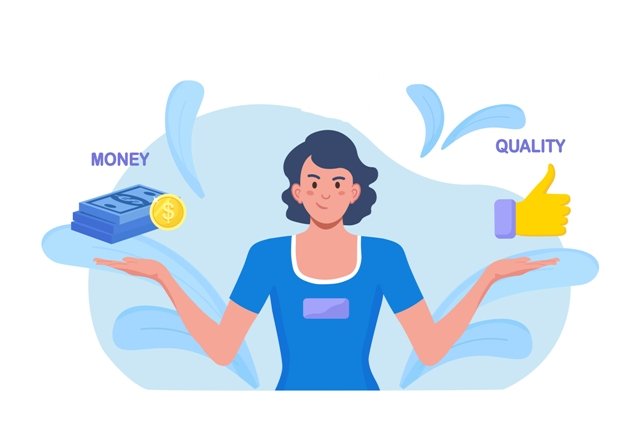Whether you are an existing Salesforce user or someone thinking of getting a Salesforce suite integrated into your business, I’m sure Salesforce doesn’t need an introduction. Touted as “The King of CRMs,” Salesforce is as popular with Fortune 500s as it is with startups and small businesses. Since its inception in 1999, Salesforce has helped over 150,000 businesses achieve better functioning, productivity and ROI.
Salesforce transformed the way enterprises used to operate. But then, there is this thing which a few like to talk about. According to an article published in the CIO Magazine, around 33% of all CRM projects fail miserably. For some companies, the failure rates have been as high as 70% based on their strategies and, of course, mistakes. Out of the many reasons for this failure, the one that comes out as the most crucial one is the wrong selection of Salesforce Consulting and Implementation Partner. This article aims to save you from being on the list of the unlucky one thirds. I’ll be discussing the role of a Salesforce Consultant in exploiting the platform to the fullest and what you should know and look for while Choosing the right Salesforce Consulting Partner.
Role of a Salesforce Integration Partner
Like any other tool, Salesforce is only good when implemented by someone who is good and understands the application inside out. That’s where the need for a Salesforce Consultant comes in. Though you may or may not hire a Salesforce Administrator according to your requirements, only an experienced Consultant can help you implement the right set of tools and utilize them to the fullest. The right Salesforce consultant company would assess your business’s details and goals. Upon assessment, the Consultant would propose the right solutions for you and also provide training and other services.

I’m sure you now understand the tremendous value a good consulting partner can bring to your overall Salesforce experience. But, on the other hand, working with the wrong partner would have a fair chance of putting you on the 33% list.
Plan First

-
Educate Yourself with the basics of Salesforce
If you are in a decision-making position in your enterprise, you understand the challenges your business faces. You should have some information about what problems you are aiming to solve with Salesforce. Salesforce’s official site does a pretty good job at explaining their products. This information helps you explain your needs while discussing with the Salesforce implementation services company. Thus, thorough research should be on top of your priority list.
-
Set your Goals and Expectations
This is an extension to tip number one. Good research backed by a proper understanding of the right business goals will go a long way in reaping all the benefits of Salesforce. On the other hand, in lack of the right expectation, you will end up either underusing the platform or expecting much more in a very small time frame. Therefore, setting the right base is crucial. This would include your business plans for upcoming years, challenges, budget planning, timelines and key roles.
Now that you have the plan, below are the
10 Tips for Choosing the right Salesforce Consulting Partner
1. Always Value Experience

Experience is something that one earns over a period of doing various projects. A detailed discussion with the ConsultantConsultant would give you a good glimpse into their experience and expertise. Remember, you might be inclined towards hiring a Salesforce Consultant who has a great deal of experience in your area of business, but this cannot be the only factor to ensure success for you. An integration partner with experience in diverse sectors might prove to be the one you want. Ask questions and discuss your expectations.
2. Know about Salesforce Certifications

The research on Salesforce would play its role here. Look for your consulting partner’s company tier (Registered, Silver, Gold, Platinum, Global Strategic Partner). This should give you a good idea about what Salesforce products they have expertise in. Salesforce provides different certifications to individuals and companies via the Salesforce Partner Ecosystem, based on their level of experience and skills. You can find more about Salesforce Certifications here. Knowledge about Consultant’sConsultant’s tier levels and individual certifications will help you select the right agency with the right set of people.
3. Look for Reviews

Finding reviews about the people you are thinking of hiring is a great way of ensuring you are in talks with the right people. Salesforce Appexchange is a great resource to find honest customer reviews and customer ratings about a consultant. You will also get to know many other important aspects about the company like experience, certifications, areas of expertise etc. Other places to hunt for reviews are social media pages and google reviews.
4. Choose Quality over price

You will come across many options with somewhat relevant knowledge and experience at pocket-friendly costs, and it makes sense too. But going with such an option has a higher chance of failure. Everyone who can develop Salesforce programs cannot be a Consultant. A consultant has a higher sense of understanding your business and creating tailor-made application packages as per your requirements.
5. DON’T hire the “Order Takers”

You don’t want them, and you don’t need them. Again, they are just developers, and they would do just what you tell them to, as I mentioned earlier. They don’t have the expertise or system to evaluate the project you want them to work on. They are just coders. A consultant would disagree with you, take inputs from you whenever required and create the right path to success. Consultants may sound expensive, but the other kind would completely derail your project resulting in even higher project costs.
6. Individual Expertise and Team Size

Each business’s requirements are different and require a team with different Salesforce product skills. Make sure your ConsultantConsultant has the team with the required skills and certifications against various Salesforce services like the Sales Cloud, Service Cloud, Marketing Cloud, Pardote etc. Team size is not something that would impact your project severely. But it shouldn’t be the “One person does it all” kind. It may affect your Consultant’sConsultant’s efficiency.
7. Discuss their Product Management Methodology

It would be best if you were comfortable with how your Consultant will deliver the project and the input from your side. You can always demand a demo or have it explained in detail. Your ConsultantConsultant should explain how the system is going to work.
8. Ask about their Support Structure

Salesforce is not a one-time affair. You may require maintenance, updating, assistance with many applications and troubleshooting. Your ConsultantConsultant must be able to provide round-the-clock assistance. This is also one of the reasons why a good size team is required. The support system should include training whenever required, for example, after an update or installation of a new application.
9. Define key roles

You and your partner may need to define some internal roles. These roles are important, and you should decide on them before getting on board with the ConsultantConsultant. These roles are:-
-
Strategic Consultant
-
Data Architect
-
Change Management Consultant
-
Technical Project Management
-
Organizational Project Management
-
Project Administrator/Sponsor(s)
-
Consultant Management
Read about the significance of these roles here.
10. Get into a long-term Relationship

Salesforce is not a short-term but rather a long journey where your CRM grows, matures and improves with your business. As stated earlier, Salesforce releases multiple updates throughout the year. Add to it the constant need for troubleshooting and assistance at various stages. As a result, smart businesses look for long-term relationships with their consultants.
The points I discussed above are the rules that we at Metaoups adhere to. With an experienced and enthusiastic team, we have been able to leave our clients with a smile every time. Our client’s reviews are testimony to that. Customer satisfaction is what Salesforce represents, and we use it as our mantra.
Need Salesforce help? We are always excited to talk.
Connect with us today.


